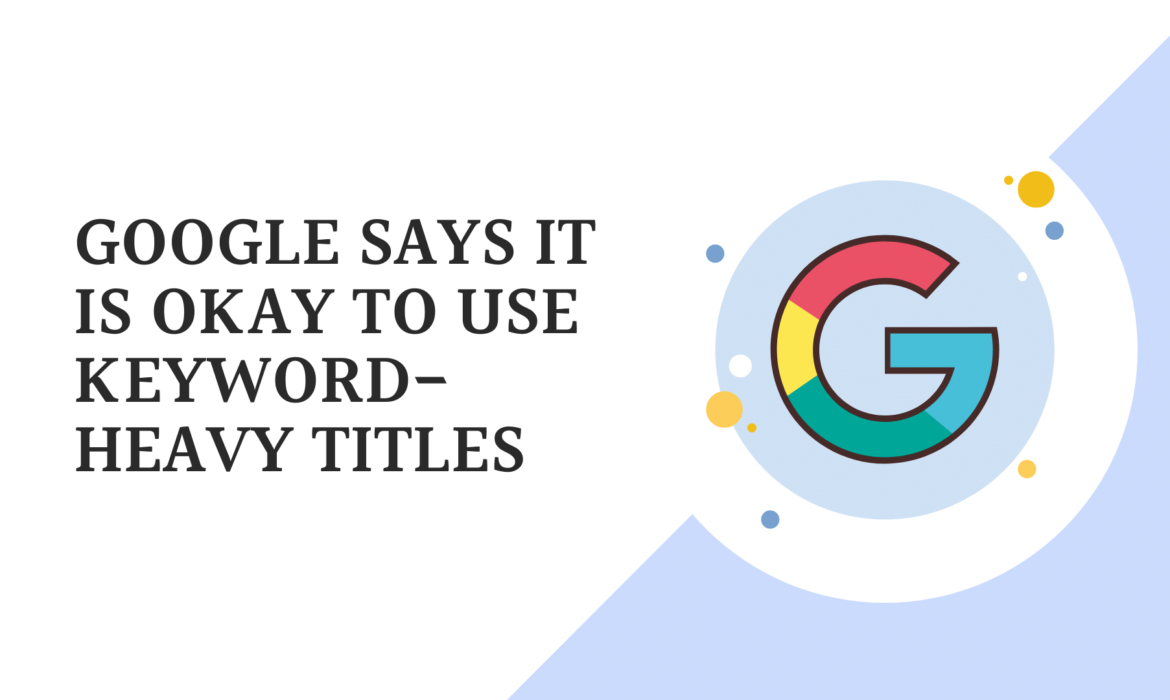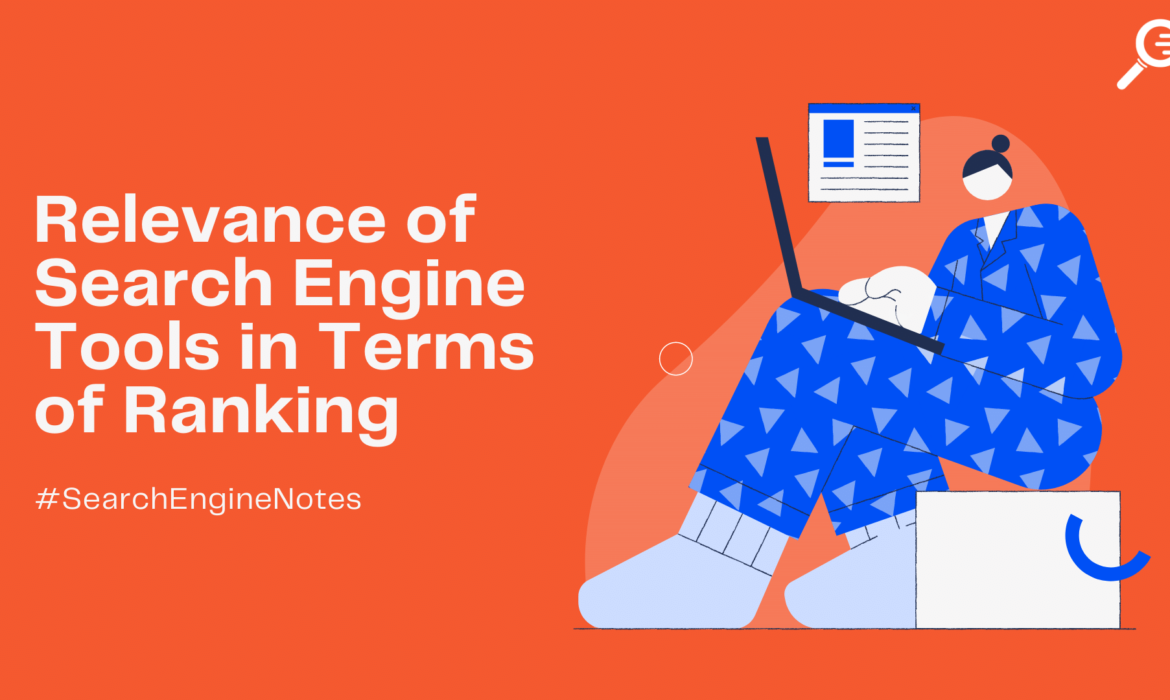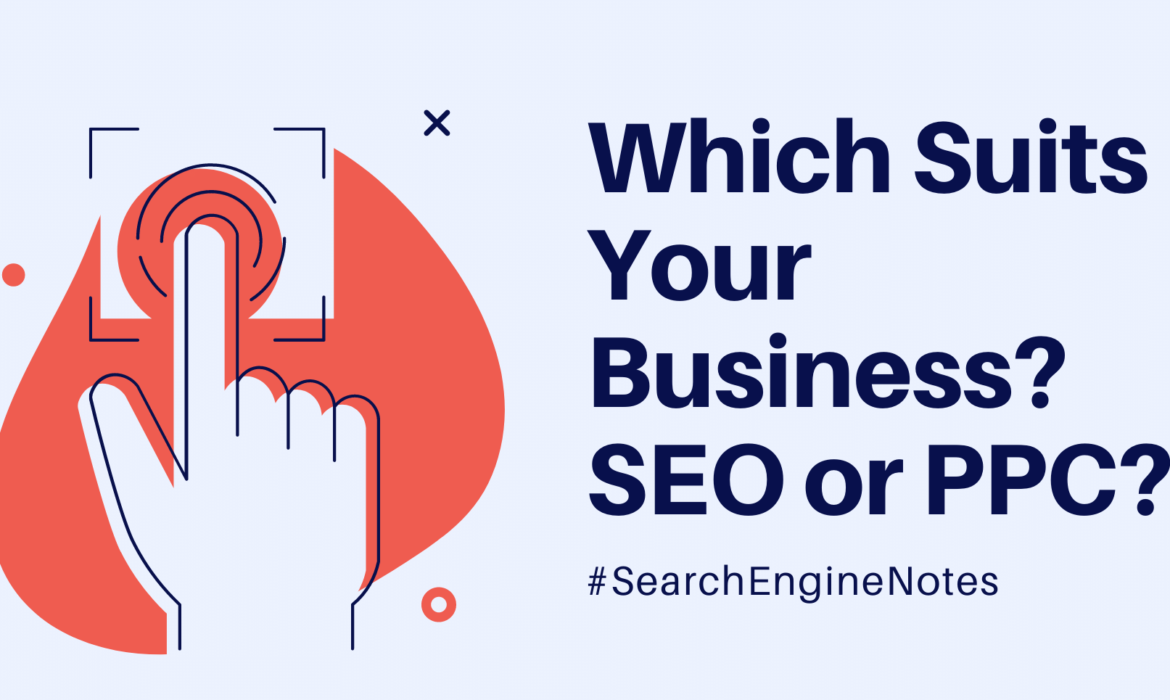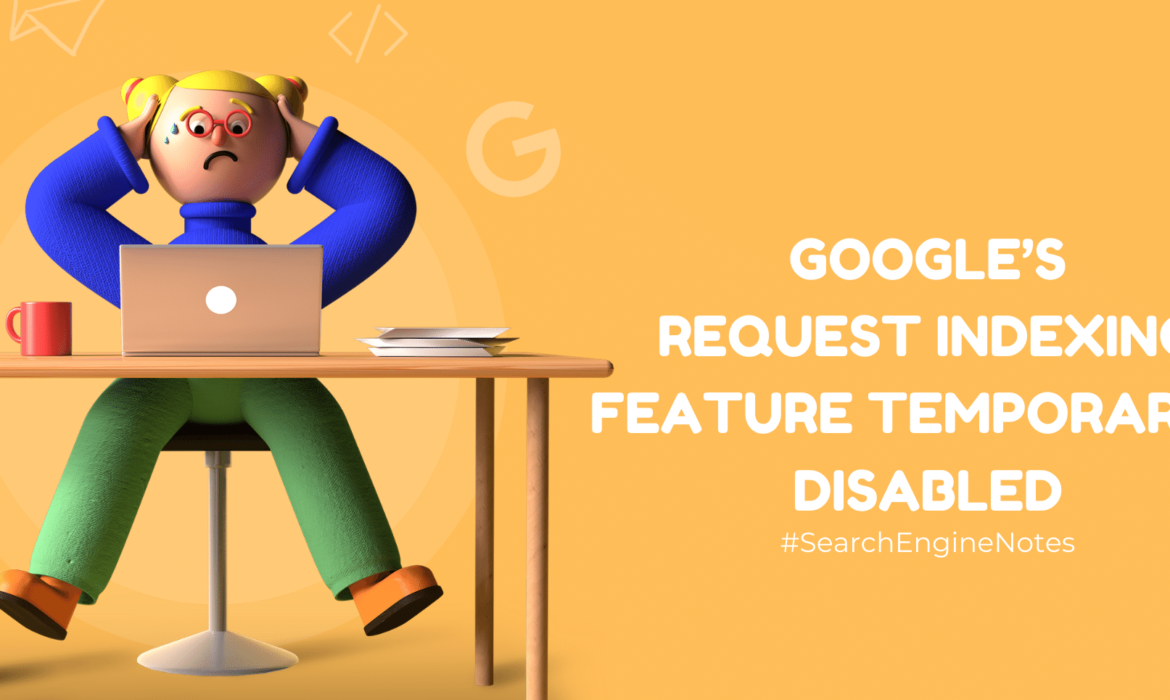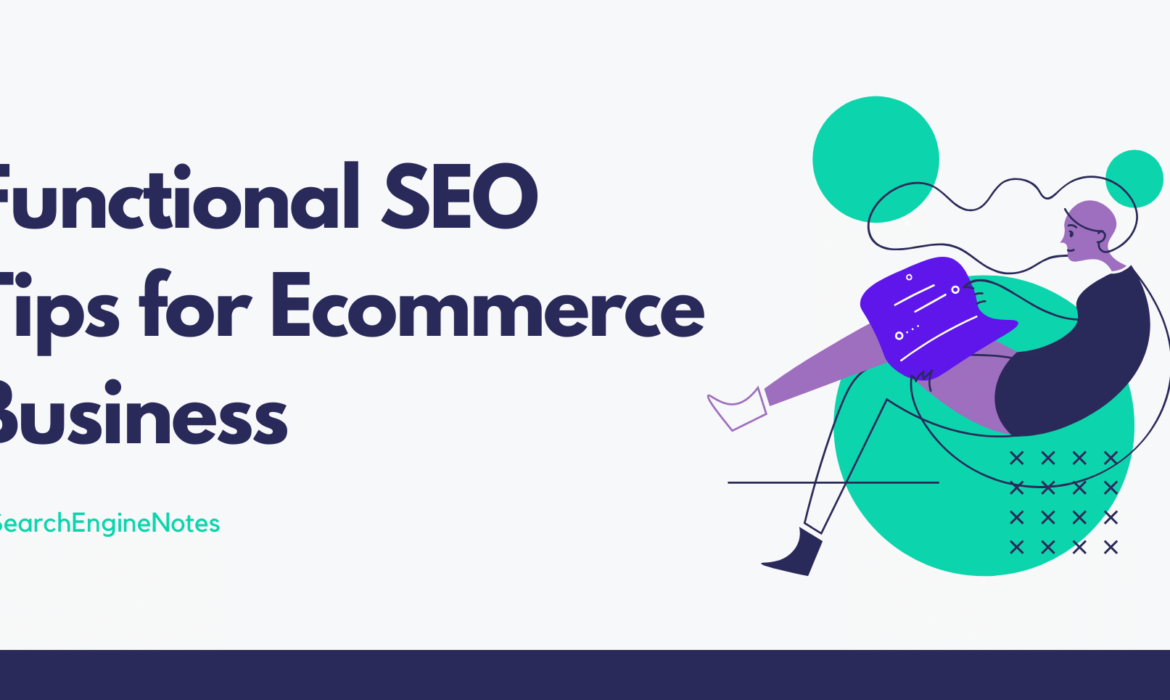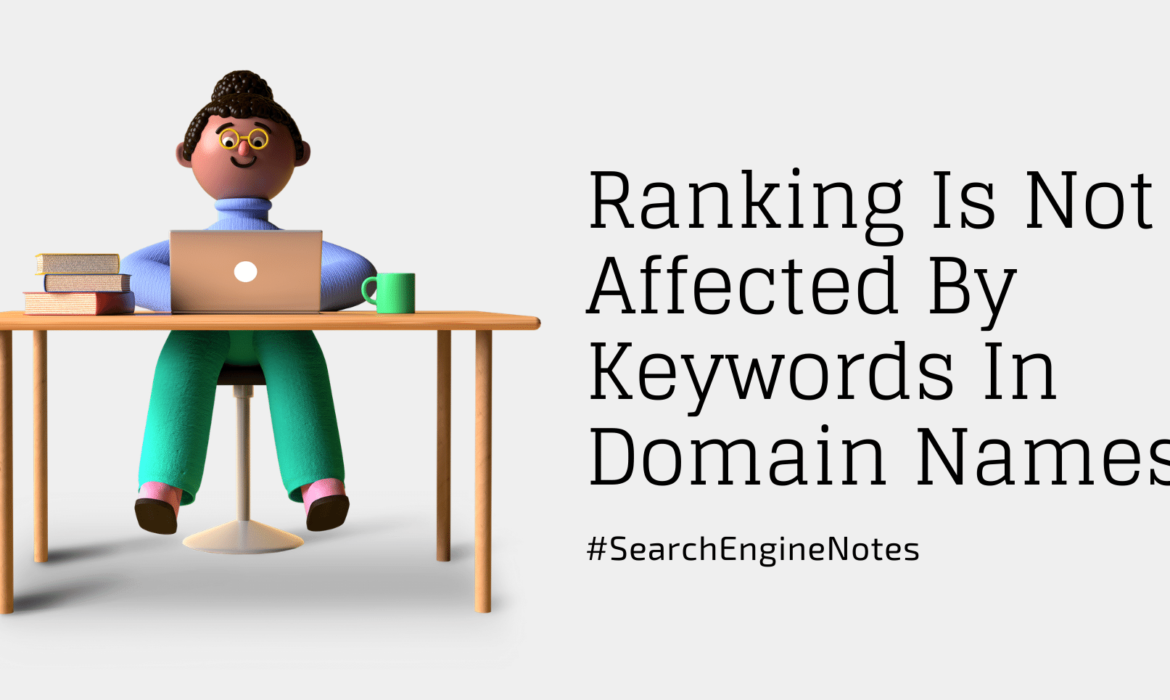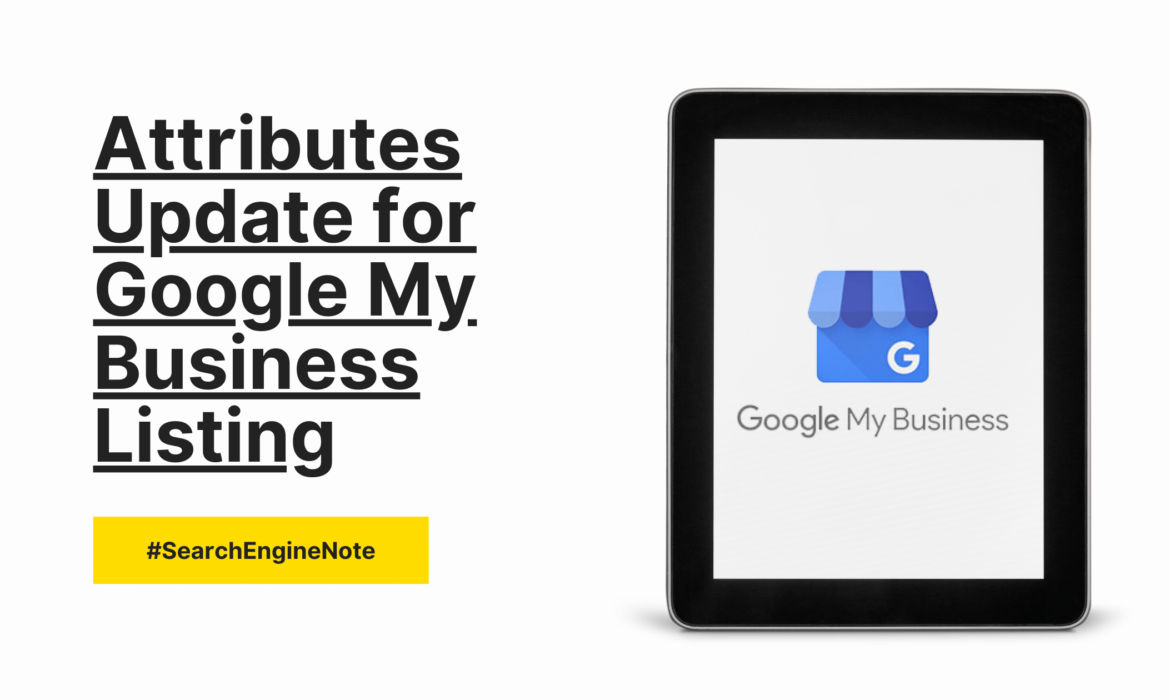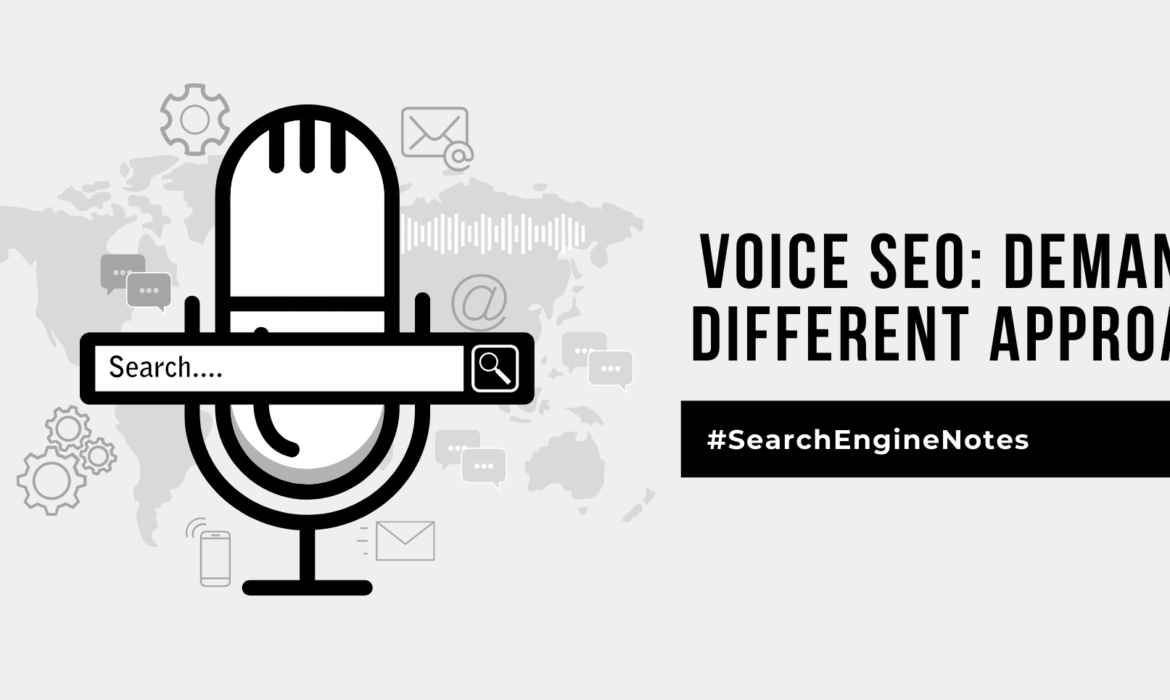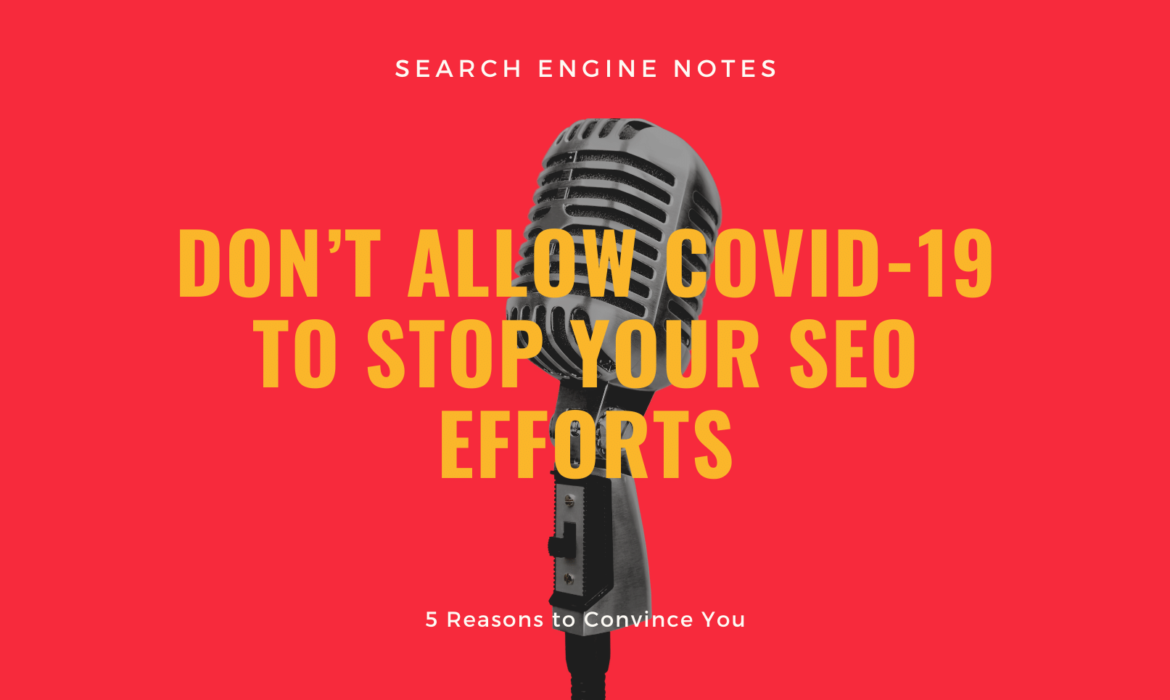Google Says It Is Okay To Use Keyword Heavy Titles
Google’s John Mueller clarified recently, that keyword-heavy titles and descriptions are a common practice, and it is not against webmaster guidelines.
We have seen that many small and medium businesses overuse commercial keywords in their titles and descriptions. Though it does not look good aesthetically, we do see these pages rank highly in search results.
Mueller says that overuse of keywords is not a thing that Google considers to be problematic. Google does not recommend it either as overuse of keywords will confuse users as to what the page is actually about, and if it serves their purpose or not.
Mueller recommends writing better meta tags to improve click-through rates (CTR) but, he never comments anything about that having an impact on improving rankings.
Mueller suggests a more engaged methodology; composing a title or description that gets a larger number of clicks is a higher priority than packing in a lot of keywords.
Here’s what he says:
“It’s not against our webmaster guidelines. It’s not something that we would say is problematic. I think, at most, it’s something where you could improve things if you had a better fitting title because we understand the relevance a little bit better.
And I suspect the biggest improvement with a title in that regard there is if you can create a title that matches what the user is actually looking for then it’s a little bit easier for them to actually click on a search result because they think “oh this really matches what I was looking for.”
Whereas if you were looking for “flower delivery Brighton” and as a title in the search results you see “flowers, green flowers, yellow flowers, Brighton…” and all of the cities nearby. You might look at that and say: well is this some SEO result? Or is this actually a business that will do a good job and create some nice flowers for me?”
So that’s something where I almost think it’s a matter of improving the click-through rate rather than improving the ranking. And if with the same ranking, you get a higher click-through rate because people recognize your site as being more relevant then that’s kind of a good thing.”
“It’s a really common tactic. We say as well that we use the keywords in titles as part of our ranking system and people say oh well I need to add all keywords to my titles, and then you end up with something like that. So just because they are used for ranking doesn’t mean you need to put everything in there.
And sometimes I suspect the bigger aspect is really the click-through rate from search rather than the ranking effect. Especially for small businesses, you don’t have a lot of chance to be visible in search results in lots of places, because you’re probably more focused on your regional area, and having a title that is really good, that matches your business, that’s a lot more important than having all of the keywords in it.”
Relevance of Search Engine Tools in Terms of Ranking
Following rankings isn’t as obvious as it used to be any longer. So are ranking tools still helpful for SEO?
Are rankings even important anymore?
This has been a seething discussion among people for decades. As the significant web indexes started giving outcomes that fluctuated dependent on what your identity is, SEO experts have contemplated whether the rankings you see are really the rankings you get. And afterward, there’s the ever-changing design of the SERPs.
When you take a gander at a SERP, what do you think about the top outcome?
Is it the Shopping results?
Is it the outcome in the maps?
Shouldn’t something be said about the Knowledge Panel?
The meaning of the top outcome isn’t obvious nowadays. Following rankings isn’t obvious, as a rule. The variety in the SERP design makes it difficult to know what the genuine top position is without investigation.
A significant number of the tools that track rankings have settings to comprehend the pieces of each SERP that show up under a particular question. Yet, that being said, following rankings isn’t as simple as taking a gander at a straightforward outline any longer. Rankings, be that as it may, are as yet critical to follow. Indeed, even with the multiplication of customized results, narratively I can say that the SERPs for most of questions seem static. That implies a great many people are seeing similar outcomes you see when they use a tool for a query. So you can follow rankings in most inquiries.
Rankings should seldom be a key execution pointer for SEO. However, really as often as possible, they are. Numerous clients come to us with stress on rankings. The overarching thought is, on the off chance that I could simply rank for [a keyword], the entirety of my SEO inconveniences will be finished.
But this is not the situation. Truth be told, much of the time, we’ve seen rankings for specific catchphrases acquire futile traffic that never brings results.
Keyword research is very important for tracking rankings. Before, rankings were something that SEO experts indicated their customers in light of the fact that, to be honest, it was simple for them to comprehend and demonstrated the advancement that was being made. Today, showing the importance of ranking a particular keyword is totally pointless without going further and breaking down the traffic that is created by the ranking. It’s hard to track consumer journeys that pour in from a particular keyword.
Nonetheless, by seeing how your organic traffic is pouring over, you can make to some degree exact assessments of how rankings are influencing the business. Ranking tools can’t precisely give information on the conversions that occur from explicit keyword searches.
Your most important SEO tool is your mind, your ability to think, to put yourself in the consumers’ shoes. You should be able to assess how changes in rankings on the SERPs influence your traffic and conversions.
So, going back to our original question, are SEO ranking tools relevant?
Well, to be honest the answer is, YES!
But any tool used without intelligence will not bring results. The most important tool is our brain and if we think logically the main magic happens on the website and not on the SERPs.
Which Suits Your Business? SEO or PPC?
This is an age-old question which we have faced time and again. Clients ask us all the time to suggest which one is better? Which one should they consider? Well, to be honest, there is no right answer to this and I will try my best to provide a holistic view on this matter.
Let’s start with SEO
SEO as we all know is short for Search Engine Optimization. SEO is the process of constant content optimization of websites and webpages so that it improves the potential of your site to rank in the organic results in various search engines. SEO provides organic traffic which is free of cost but it takes a while to rank in organic search results.
SEO is a long term process and you might need the help of an expert to achieve top ranks faster. It takes us primarily a little over 3 months to rank for low competition keywords and somewhere around 9-12 months to rank for high competition keywords. Rank here refers to the first page ranks only.
Let’s take a look at some PROs and CONs of SEO
PROs
- Organic Traffic – No marketing can provide free, credible, and organic traffic like SEO does. It takes time to reach the top ranks but it sure is worth the time and effort. Once you reach the summit you can even pause your SEO for a while and it will not matter. Ranking in the top spot means you start reaping the advantage of the vicious cycle of SEO. More people will link to your site which will in turn drive more and more traffic thus fortifying your position further in the search engines results’ page.
- Credibility – Some users do not pay attention to search ads on the results page. Having your site turn up in the organic results will boost your credibility as a brand. Viewers will put more trust in your brand and will more likely consider you for their requirements.
- Cost-effectiveness – SEO is not entirely free, to be honest, as it takes a considerable amount of time and effort (read investment) to build your position in the organic results. Once you acquire the ranks it helps drive a lot of traffic and boosts your business. As it’s organic you are not charged on a per-click basis and you can continue to reap the benefits for as long as you want without any other cost implications. The ROI, when compared to other paid media, is way better.
- Competitive advantage – it takes a lot of time to enter the top ranks of SEO. It is neither quick nor easy. So once you fortify your position in the organic results, it will not be easy for your competitors to buy a spot above you. So you can continue to reap benefits from your organic traffic while they have to put in the work to get a spot in the top ranks. It’s always good to start SEO early because the early bird gets the rank (considering that you do everything right and you are not competing with giants like Amazon or eBay).
CONs
- Keyword competition – It might happen that the keywords you are targeting are showing results for big brands. This indicates that you need to rethink your keyword strategy because it will take years to outrank big brands or conglomerates who have a huge team working round the clock for their organic rankings. You cannot possibly compete with them and win soon enough.
- Content Development – The only way to achieve strong organic visibility is through quality content assets. Constant content optimization and content development require a dedicated in-house team. You can also hire an SEO agency for the same but there is a cost implication in both options.
- Time – SEO is a time taking process and it is not a myth. If you are willing to rank organically by using the right measures then you need to be patient. SEO doesn’t come with quick results but it does provide sustainability and a good ROI over long periods of time. If time is a constraint and you are looking for quick results then SEO is not meant for you.
Now we shift our attention towards PPC
PPC or Pay-Per-Click advertising solution is provided by many online platforms. Google has Adwords, other social media networks like Facebook, Twitter, and Quora also have their own respective PPC offerings.
PPC is a marketing model where ads are displayed and you pay for the clicks which ultimately drive traffic to your website. PPC is flexible in nature and you can target your campaigns with laser point accuracy. It takes experience though to set up a successful PPC campaign right off the bat. You may need to optimize it constantly if you have never run one before.
Let’s look at some of the PROs and CONs of PPC
PROs
- Fast and effective – PPC campaigns are the best bet when you want results and you want it now. A PPC campaign can be up and running in a matter of weeks and unlike SEO it starts providing visible results right from the start. PPC is the fastest way to reach in front of customers who make search queries with the intent to purchase. A short PPC Ad campaign can also serve as an effective tool for testing a new product or a marketing message. It delivers quick results and indicates key gaps in the process.
- Targeting – PPC provides the best targeting options to position your brand in front of potential customers. You have control over various factors viz., Query Keywords, Time, Days of the week, Geographical location, demographical factors, devices, and other audience factors. SEO in comparison is far more scattered.
- A/B Testing – PPC provides the flexibility and the option to test multiple ad sets, landing pages, and even CTAs to ascertain which performs better. This can prove to be beneficial as this information acts as market feedback and thus can be implemented in other areas of marketing.
- Insights – PPC provides marketing data and insights, unlike organic search. It is very easy to determine which keywords are performing better and what is the conversion percentage and cost implications for the same. Analytics software (Google Analytics) provide the option for deeper research and study of each campaign.
CONs
- Can be Expensive – If not managed properly the cost of a PPC campaign can spiral out of control. Lack of proper research and experience can prove to be costly in this scenario. Targeting entire counties or international campaigns will come with a huge price tag.
- Continued Investment – Unlike SEO, PPC is pay for results marketing. Once you stop the investment the traffic goes away and the leads cease to pour in. Paid advertising is viable as long as the acquisition cost is right.
- Expert Management and Optimization – A successfuland cost-effective PPC campaign needs the expertise of a veteran. A lot of things need to be monitored and optimized viz., Bids, Quality Scores, Positions, and Click-through rates. You need the help of an expert to keep things in check and manage your costs efficiently.
- Constant Need for Improvement – PPC Ads become boring and repetitive after a while and you need to change and improve your ad copies and messaging from time to time. PPC ads can be easily imitated by your competitors too. They can even get a glimpse of your entire funnel and strategize accordingly.
SEO vs. PPC – Conclusion
Well, I tried to give you a quick glimpse of both the worlds of SEO and PPC. The factor that will influence the decision to choose one over the other is the nature of your business along with the time and financial prowess that you have.
So the question that you need to ask is not SEO or PPC. The questions are: Do you need leads now or can you manage without them for the time being? Are you in for the long marathon or do you want to win the short sprint? Do you have any website traffic or is it too dry out there? What is the level of competition in organic search keywords that you are willing to target? What is the cost per click in PPC?
Chalking out clear short and long-term business goals is an essential step that needs to be taken before concluding whether to choose SEO or PPC.
SEO and PPC – The Suggestion
This is every marketer’s dream, the best of both worlds, an integrated symbiotic strategy for both long and short-term returns. SEO and PPC together make a great team and support each other beautifully. You can do a lot of things if you integrate both. PPC can provide keyword and conversion data which can be used to optimize organic traffic i.e. SEO. High cost, high volume keywords for your business can be moved from PPC to organic search. Leverage Remarketing to cast a net on your organic viewers and boost your conversions.
Though implementing both SEO and PPC may not be an option for most businesses, it does ensure improved results. Utilizing both paid and organic channels ensure brand visibility and authority.
Do reach out to us if you are still confused between the two. For more such insights and updates keep an eye on our Facebook and LinkedIn pages.
Google’s Request Indexing Feature Temporarily Disabled
Google announced on their Webmasters Twitter handle that they will be temporarily disabling the “Request Indexing” feature of their URL Inspection Tool. This tool could be accessed from the Google Search Console. The announcement was as follows:

The URL Inspection Tool was primarily used to request a crawl of URLs individually. This is important after a new page is added or changes are made to an existing page of a website. Though not a full proof action, it necessarily accelerates the rate at which Google indexes the new content.
Google had mentioned previously that it does not “guarantee” immediate indexing through this process and may even choose not to index the new content at all.
Since it has been mentioned “infrastructure changes” it might lead to some enhancements to this feature and the inside story is that this might take at least a few weeks if not a few months.
Google has mentioned that it will continue to detect and index new content through their regular methods so it is something that site owners need not worry about much. Site owners can make do without this feature temporarily it will not have any noticeable impact.
Functional SEO Tips for Ecommerce Business
An e-commerce website is like an online virtual store and just like its brick and mortar counterpart, it needs to attract customers in order to be successful. While brick and mortar stores have a con that they are rigid and cannot be moved once placed. An e-commerce store has the power to shift placement whenever it’s required. The whole game boils down to reaching out to the right set of audience and attracting organic traffic to the website. This is where SEO plays a key role. If implemented strategically, over a period of time, SEO will not only help you to reach to prospective customers who are looking for your products and services, it will also create a brand presence by helping you reach top ranks in the SERPs. If your website/e-commerce store is visible, more and more quality traffic will start pouring in and the chances of conversions will rise.
Below I will provide a few tips which can help you optimize your ecommerce website and boost your chances for more conversions.
- Keyword Niche
Finding the right set of keywords for your niche will determine the result of your SEO efforts. An extensive keyword research should be conducted and choose a set of keywords that match your business. The main focus should be to keep in mind the nature of user queries and frequently used search terms. Keep some Long-Tail keywords in your bucket and these will help you rank for specific niches faster. Determining the specific search queries of your end customers and evaluating the users’ search intent will help you to finalize your set of targeted keywords.
- Say No to Duplicate Content
Ecommerce websites face a lot of issues because of duplicate product descriptions. Since many ecommerce websites list products from several vendors they put up descriptions which are generally provided by the vendor themselves. The problem is these sellers provide the same description to every ecommerce portal they sell their products through. This creates a huge issue and affects the ranks of the ecommerce websites substantially. Try to use unique descriptions for your products and you will be good to go.
- Image Optimization
The importance of ALT Tags cannot be stressed enough when it comes to e-commerce websites. Generally, there is a huge inventory of images on e-commerce websites. Apart from them being attractive and unique so that your viewers are compelled to buy your products they can play another important role in driving traffic to your website. Important Keywords can be added to the ALT tags of the images on your website. This will result in them popping up in Google’s Image Search Results and will in turn help you to attract organic traffic to your website.
- URL Optimisation
URL mapping and optimization is very crucial for SEO. It helps search engine bots to properly crawl and index your website’s pages for the right keywords. URL optimization and proper structure plays a vital role in indexation of your website. Also having a neat and efficient URL structure improves the overall user experience of your viewers thus decreasing the bounce rate of your website and increasing the chances of conversions.
- Broken Links
This is a major headache and the worst nightmare of any ecommerce store owner. Having a broken link means disrupting the flow and overall experience of your viewers. Imagine clicking on a product to view its description and landing on an “Error 404: Page Not Found” is something which you would not want to happen. Right? Having broken links or ignoring them specifically when you are selling from your website is something that you would want to steer clear of. There are a host of online websites which can help you detect such broken links. So remember to run regular checks on your website and do get any broken links fixed if any crops up.
These SEO tips will help you get started for sure. There are a lot of factors which you also need to consider while running an eCommerce website. Do feel free to reach out to us if you are facing any issues and we will be happy to assist you.
Do check out our last week’s post on Digital Marketing Tips for Ecommerce business in case you have missed it. Also do follow us on Facebook and LinkedIn to get such tips and updates.
Domain Names do not Need Keywords for Ranking
Google’s Webmaster Trends Analyst, John Mueller in his latest Ask Google Webmasters video revealed that there is no ranking benefit associated with having keywords in a domain name. Keyword based domain extensions also known as top level domains (TLDs) offer no ranking benefit according to John.
This contradicts many studies and surveys which indicates that having keywords in the domain helps in ranking. Mueller specifically mentions in the video that a keyword in a domain name will not help a site rank better for that keyword. This is what he said, “Just because a website has a keyword in its domain name doesn’t mean that it’s more relevant than others for that keyword. In short, you don’t need to put keywords in the domain name.”
He even further went on to mention that using a keyword in a domain may put the site at a disadvantage. He states that it will be difficult for any particular site to shift to a different niche if they have a specific keyword in their domain.
Mueller said, “From a practical point of view, it’s worth also keeping in mind that businesses evolve over time, and moving domains is hard. So it often makes sense to pick a domain name that you can use for the long run and not necessarily one that just matches what you’re offering today. For example, if you focus on making awesome blue widgets, and build your website on BestBlueWidgets.com, what do you do when you start offering red widgets?”
Planning for the long haul is the key here. Choosing a domain name which can be used universally, irrespective how the business changes itself. It is absolutely unnecessary to worry about your site’s domain name and whether it will help you to rank for a specific keyword or not.
In John’s words, “So instead of spending too much time on the domain name, or the top-level domain name, focus instead on building a site that you can continue to use for the long run.”
You can watch the full video here: https://youtu.be/nSAVmUvMU_0
New Set of Attributes for Google My Business Listing
Google has rolled out new attributes for its My Business listings with options to help highlight health and safety measures. The aim is to help businesses highlight the measures they are taking to protect customers during the pandemic and this can make all the difference in choosing one business over another.
The new attributes that businesses can add to their listings are:
- Appointment required
- Mask required
- Staff wear masks
- Staff get temperature checks
- Temperature check required
Searchers can now take precautions accordingly and can use these attributes to decide about where to visit and more importantly the ones to avoid.

These attributes have already started showing up on Google My Business listings on all platforms. Though the response to rolling out these attributes has been relatively slow from Google’s end, it is still an important one. The new health and safety attributes join an expanding list of attributes that were added by Google specifically for the pandemic.
Google added the following attributes beforehand. Let’s take a look at the attributes which were added before:
Attributes for Local Restaurants (Added in May)
- Curbside pickup
- No-contact delivery
- Dine-in
Attributes for Online Services (Added in June)
- Online Care
- Online Appointment
- Online Estimates
- Online Classes
Steps for adding attributes to your Google My Business Listing:
- Sign in to My Business Account
- Select and Open the Location that you want to make changes to
- Click on Info (from the Menu)
- Look for “Add Attributes”
- Click on Edit
- Search for the attributes or browse through the list of options
- Click on Apply once you are done.
Enhanced robots.txt Testing Tool Announced by Bing
Bing’s enhanced robot.txt tester has new features that improve the testing and diagnosing. Robots.txt is an essential file and producing a perfect one is a top priority for SEO.
The tool bridges an important gap as getting this wrong can create unpredictable SEO outcomes. A robots.txt file is a file that tells search engine crawlers what to do and not do on a website. A robots.txt file is one of the few ways a publisher can exercise control over search engines.

Errors in the robots.txt file can result in search engines crawling pages that were not meant for indexing. Without a search crawler block, your site will generate 404 error log notation in a random manner. Wrong entries in this file may result in diminishing the ranking of your web pages because they might have got blocked and you don’t have the slightest knowledge about the reason behind it.
With the introduction of Bing’s new tool, publishers can now review and test their robots.txt file in a much more efficient way.
Following are the actions that Bing’s new robots.txt tool takes to provide valuable information:
- Analyze robots.txt
- Identify problems
- Guides publishers through the fetch and uploading process.
- Checks allow/disallow statements
Read More about the official announcement here: https://blogs.bing.com/webmaster/september-2020/Bing-Webmaster-Tools-makes-it-easy-to-edit-and-verify-your-robots-txt/
Voice SEO: Demands Different Approach
Everyone thought that voice and virtual assistants will take over the market by storm. A lot of products were launched to target the consumers in this category. You will be amazed to know that the most voice search queries are placed from smartphones till now even after a few years has passed after the first virtual assistant products were launched. The likes of Google Home and Amazon Echo range are yet to see success in this segment.
Google still believes that there is a potential in this market and they continue to do intricate research on human language and wants to improve their search results with natural language understanding. The following voice search study data shows how much gap exists in terms of quality between Google and Amazon.

While previous studies had shown a different picture, the above data show the Google Assistant (on Android smartphone) and Siri had the lowest percentage of unanswered questions (2%) compared with Alexa, which couldn’t answer 23% of questions. This shows an astounding improvement for Siri and Alexa is the only one which is lagging behind in this competition.
We know that various voice assistants rely on different sources of information for generating answers to search queries. This is because they provide different results for the same set of questions.
Google Assistant responds to local queries with content from Google My Business (GMB) and the local pack. Siri draws primarily on Yelp. Alexa relies on Bing, Yelp and Yext.
Areas of focus for Google optimization:
- Focus on Google My Business
- Use structured data
- Use content that are in conversational language
- Focus on common user questions and standard FAQs for your products and services
Areas of focus for Siri:
- Optimizing Yelp business profiles
- Choosing the correct business categories
- Adding lots of images (applicable for GMB too)
- Keyword Optimization in Yelp profile content
- Having a steady stream of reviews
- Responding to reviews on a regular basis
It is needless to say that if you are already in the habit of using best practices for SEO then you will do relatively well in results for voice search too. The key to optimizing for voice search is to write content for your users and their needs. To summarize, we believe that keeping your focus on the platform specific factors, voice or conversational optimizations (FAQs), creating the right content for your customers and paying attention to listings and reviews should fetch you good results.
Don’t Allow COVID-19 To Stop Your SEO Efforts
We are dealing with a global pandemic at this moment, one which has literally brought the global economy at a complete standstill. But is it wise for businesses to stall at this moment of crisis? Are those businesses clever, the ones which are hoarding their revenues and ducking in their bunkers to weather the storm?
Well businesses are shifting strategies as we speak. Some are hoarding cash and preparing for the worst and the others are trying to sail above the crisis. So a question might pop up in your mind right now that how can your business catch the right wind?
Well it might seem like fairytale and a whole lot of gobbledygook otherwise but we are here to break it down for you in simple terms. Business in reality can thrive in downtimes. All just boils down to the survival of the fittest. The winners will choose to invest heavily in search engine marketing.
We are just providing you with a few reasons why you should continue with your SEO efforts:
- Generate revenue more easily
Businesses that have a good cash flow can thrive and haul through an economic crisis. Liquid cash is the best solution for businesses to survive in the middle of a state of emergency where the business is dwindling day after day.
Opt-in email lists are the best marketing strategy that provides a good ROI. The only problem is that you cannot buy a list online which provides a reliable stream of revenue.
Search engine marketing is the best way to create such a list which taps into the interests and demands of your consumers.
SEO also helps in reach the consumer when they are looking for something they need. Both paid and organic marketing will help during this period as the mindset of the consumers is constantly in a state of need.
If overall sales of your products and services is down because of the pandemic you can avoid making more losses by focusing your efforts and revenue on a strategic search engine marketing plan which will help you to reach those that are still in a buying mood. Search engine marketing helps generate a lot of sales and leads for your business.
You have to simply cut the queue and leapfrog to the front so that you can cash out when a buying decision is made by the consumers.
- Quantified Results
In times of budget crunch it’s always best to focus on consumers who have more buying motive than the ones higher up the funnel.
Search engine marketing helps you target only these customers. Furthermore it also helps you understand if your efforts are bringing back results or not. A quick glance at the analytics will provide you with a clear picture of the sales and leads procured from your SEO efforts.
Search engine marketing in its very nature is reactive. Competent search marketers know when exactly to tweak keywords in order to cater only those customers whose search has a higher purchase intent than others.
All that matters during a period of crisis is that you exactly know where your Ad dollars are being spent and how effective they are in terms of ROI.
- A person in need, search indeed
Just before the lockdown started we saw a wave of panic buying among the common mass. People started stocking up essentials and soon we found all the malls, markets and even the local shops had run out of essential items.
Scarcity of goods will be the new normal now. Since people will avoid going out for groceries on a daily basis and risk getting contaminated.
So it will be normal for consumers to search for scarce goods online. They will also search for alternatives. So if your business caters to this section and appears in search results then you can take advantage of the situation.
Capitalizing on SEO early will be the key. Keyword costs for scarce items will increase over time as the demand for them rises.
- Demand will never die
Since it’s not the end of humanity, demand for products and services will be there as always. Both paid and organic search engine marketing works best for serving those consumers with unquenchable needs and wants.
It takes only a few moments to setup and run a Google Ads Campaign. Though search engine marketing may not be a one solution for all problems but it works for most cases.
We would highly recommend focusing on search engine marketing now especially if you haven’t done so yet.
- Stability is just around the corner
Life as we know it may or may not get changed a little but things will stabilize soon. There may be a new normal around the world which we have to accept eventually. Though it may seem hard to digest right now but we humans have been known to adapt to situations and go on with our lives.
In this supposedly new world, search engine marketing will still be relevant maybe more than now. It will be one of the most effective ways to reach a potential consumer.
Those who will invest in search engine marketing now will reap the benefits in years to come. A small but wise decision now will help your business to pull through the tough times that are yet to come. Search engine marketing is the most reliable and effective way to market your business in this period of crisis.
So drop those second thoughts and get started now.
Good Luck.

